Will arable farmers opt for Sustainable Farming Incentive?
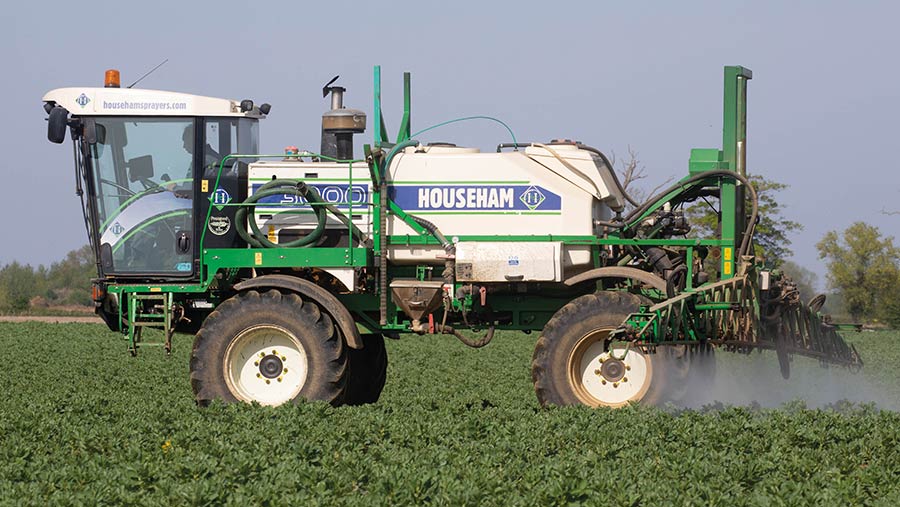 © Tim Scrivener
© Tim Scrivener Finally, there’s some clarity about what the Sustainable Farming Incentive will offer, with six new standards on top of the three existing ones, three-year agreements, quarterly payments, and simpler online applications.
We speak to six farmers the country about how it will fit into their plans for 2023.
See also: How 8 farmers are responding to high fertiliser prices
South East
Doug Wanstall, Ashford, Kent
The central objective for Doug Wanstall is to use the requirement in the arable soils standard for regular soil organic matter testing as a way to finance creating a baseline level for soil carbon projects.
“The information from the tests and the soil health plan feeds beautifully into soil carbon project development work,” he says.
He’s likely to apply for the highest level of the arable soils standard, with his use of cover cropping and composts meeting the requirements, but is less likely to apply for any other standards.
“For now, we’ll look to keep it simple.”

Douglas Wantstall © MAG
South West
Emma Foot, Bere Regis, Dorset
An Agrii meeting in January has helped Emma Foot understand what was involved in the Sustainable Farming Incentive (SFI) more clearly and make it seem less daunting than when the pilot was launched two years ago.
“It seems we do a few things required anyway, so it wouldn’t take too much extra effort,” she says.
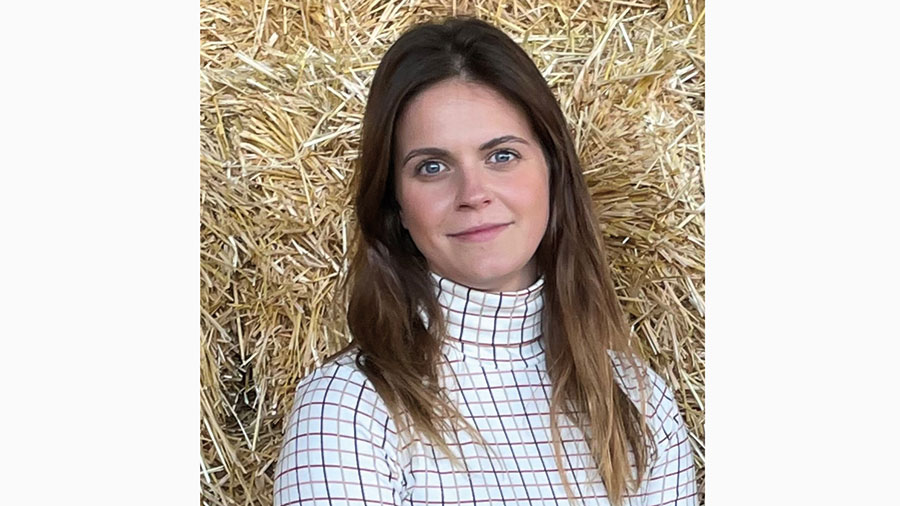
Emma Foot © Emma Foot
She’s looking at either the intermediate or possibly higher-level arable soils standard, with cover cropping already wanted by Poole Harbour catchment.
Nutrient management plans are also an easy win, as they are already carried out for assurance schemes. “It’s just the extra costs of soil organic matter testing we will need to cover, and of course the extra time it takes.”
East Anglia
James Sills, Essex/Suffolk border
Renewing the farm’s largest Mid Tier Countryside Stewardship scheme is the main focus for James Sills this year.
That will still mainly revolve around the rotational options extended overwintered stubbles and floristically enhanced grass (AB8), which allows the farm to continue with its current approximate 50% winter wheat and 50% Countryside Stewardship split.
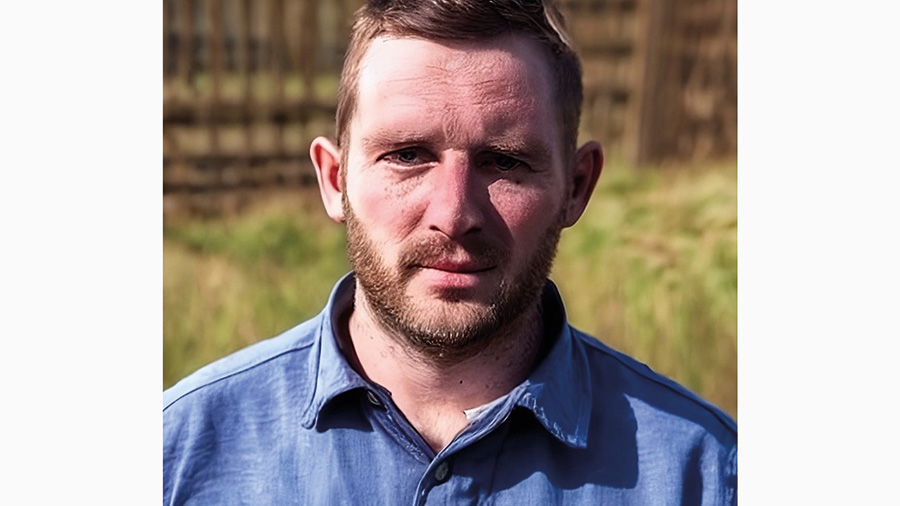
James Sills © Supplied by James Sills
“Taking into account changes in input and output prices, as well as the updated stewardship rates, this remains the right thing to do for our farm.
“Even at the peak of wheat prices last May, it didn’t make sense financially to grow an opportunistic second wheat rather than fallow.”
For beans, spring malting barley with a chance of ending up as feed, and oilseed rape on anything other than well above average yields, and the risk adjusted returns also struggle to compete,” Mr Sills says.
That doesn’t mean SFI will be ignored. “The no insecticide option looks worth doing for us. We’ve been looking for an excuse not to apply insecticides and this is a sweetener to make that decision easier.”
But there is a question over how Defra/Rural Payments Agency polices that payment, he notes.
“I know there’s a new philosophy about trusting farmers to do the right thing, but handing out £45/ha over a wide area will add up to quite a lot of government money being spent.
“But any greater level of intrusion into auditing pesticides, for example, will frighten people off.”
The business will also keep an eye on the potential upcoming direct drill payment rates, although at the moment it has no plans to change away from the current cultivation system, he says.
But he’s likely to give the arable soils standard a miss because of less than exciting payment rates and a concern over meeting the 70% green cover requirement in his system without double funding.
West
Mark Wood, Hereford
After expressing an interest to be part of the SFI pilot, but ultimately deciding the effort and reward were not worth it, the new announcements for 2023 will likely tempt Clay Farms in this season, says farm manager Mark Wood.
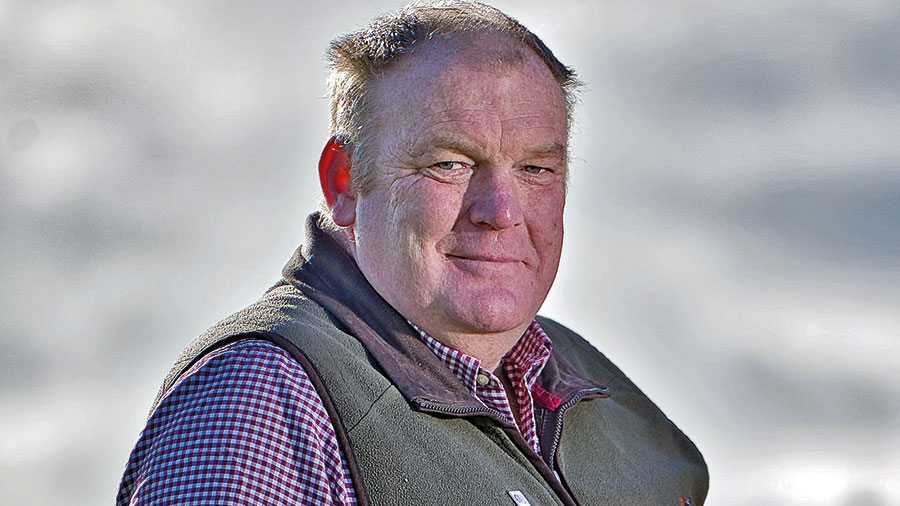
Mark Woods © Richard Stanton
“It’s pricked my interest as payments are more realistic, and what they are offering suits our farming business without having to make major changes.”
He’s likely to choose a suite of options, including no insecticide use, although the exact plan is still to be decided.
It will run alongside a new Countryside Stewardship agreement that started on 1 January. The payment will be a help, he says.
“It’s not going to replace BPS, and nor was it designed to be, but it is another little string to the bow to replacing it, along with diversification and changing farming practice.”
Midlands
Will Oliver, Leicestershire
Will Oliver’s farm is already in SFI – having signed up last year for the intermediate £40/ha arable soils level, mainly because the farm was already doing what was required.
He’s now looking to add some of the new options, some of which might require changes on farm. For example, he’s interested in the companion crop option.

© Tim Scrivener
“We’re not doing it currently, but could soon learn – hopefully, by visiting some farmers already doing it,” he says.
His initial thoughts are under sowing maize with clover, after the maize has established as the crop doesn’t like competition early. That would require investment in suitable equipment – he currently uses contractors.
“There are grants available and it makes it more attractive to invest if you’re going to get a benchmark income from it.”
Clover is also an option for wheat, along with buckwheat. Beans would also be attractive, both in maize and wheat, but they play an important role in his rotation already.
“It might change how we look at rotations completely though – perhaps we could use beans as a companion crop across the board.”
Mr Oliver is also planning to choose the no insecticide option, having not used one for five seasons, but not at the expense of yield. “If I need to put an insecticide then I assume I can do it, but you don’t get the payment.”
The proposed direct-drilling payment, plus the grants available for purchasing a direct drill, has led him to order a 6m Horizon DSX.
He already direct-drills some wheat with his Horsch Sprinter, but struggles after maize. The Horizon with its triple hopper will also potentially help with companion cropping.
Financially, after adding in payments for integrated pest management and nutrient management plans – which he can do himself as he’s Basis and Facts qualified – that will start to add up to a crop earning a substantial amount before it is even drilled, he concludes, albeit with more paperwork.
“I don’t want a soil or nutrient management plan, for example, to be a box-ticking exercise just for Red Tractor or SFI.
“I would like it to be relatable so our farm staff can use it and not just a boring Excel spreadsheet. I’d rather have field maps that are colour coded, highlighting high-risk areas for this reason.”
North
James Pick, North Yorkshire
On perhaps 15% of James Pick’s farm, new SFI payments could reach £265/ha – slightly higher than what Basic Payment Scheme used to achieve.
That will be where he can stack companion cropping, no insecticides, the intermediate arable soils standard, and direct drilling – assuming it is included and at the highest proposed payment rate – when growing oilseed rape and winter beans.
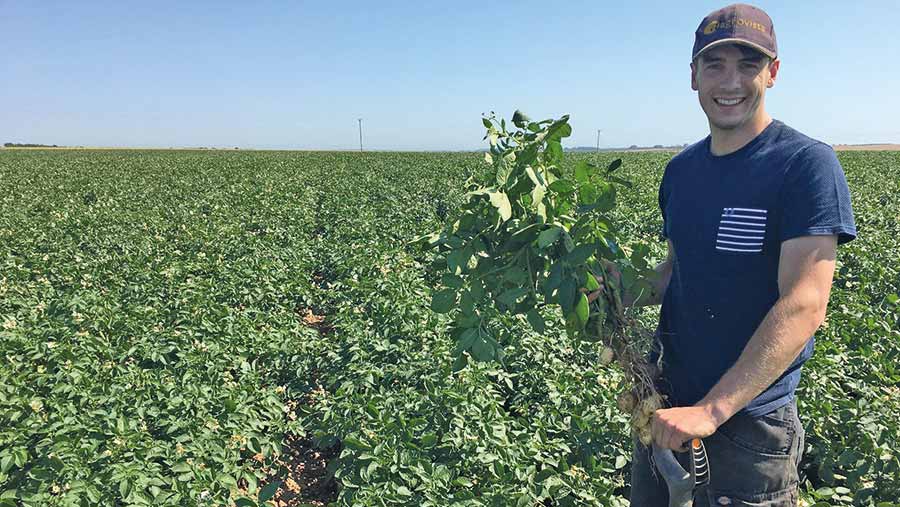
© James Pick
“On the rest of the farm I think it will be £150/ha, which is good money for things we’re already doing. Everything seems to be falling into line with how our farming system is going,” Mr Pick says.
The farm applied for the intermediate arable soils standard last year, which is running alongside a Countryside Stewardship agreement.
To that, he’s likely to add the other options, including companion cropping. “I’m looking to establish clover with beans this year and then try to take the clover through into a first wheat.”
He’s also planning to adapt his potato planter to plant companions alongside potatoes, but with 90% of the potato area on rented land he’s not sure it will be possible or worth the hassle to claim the companion crop payment on that land.
